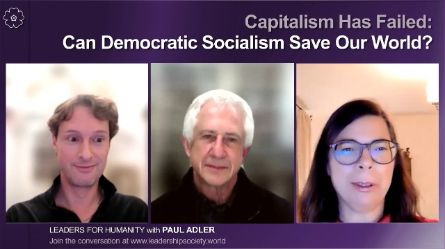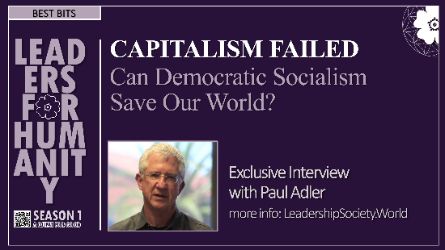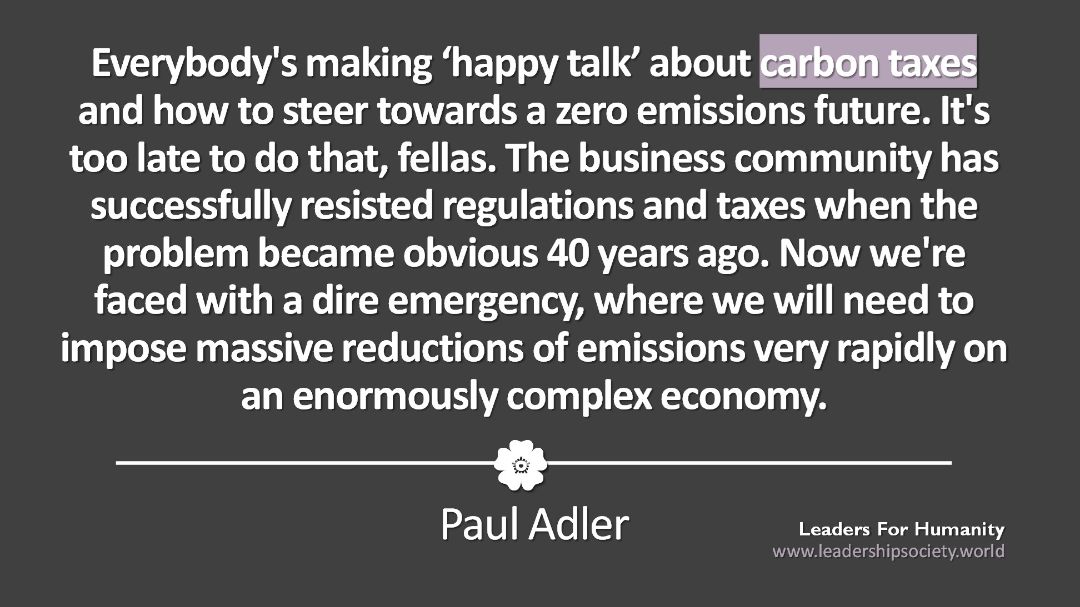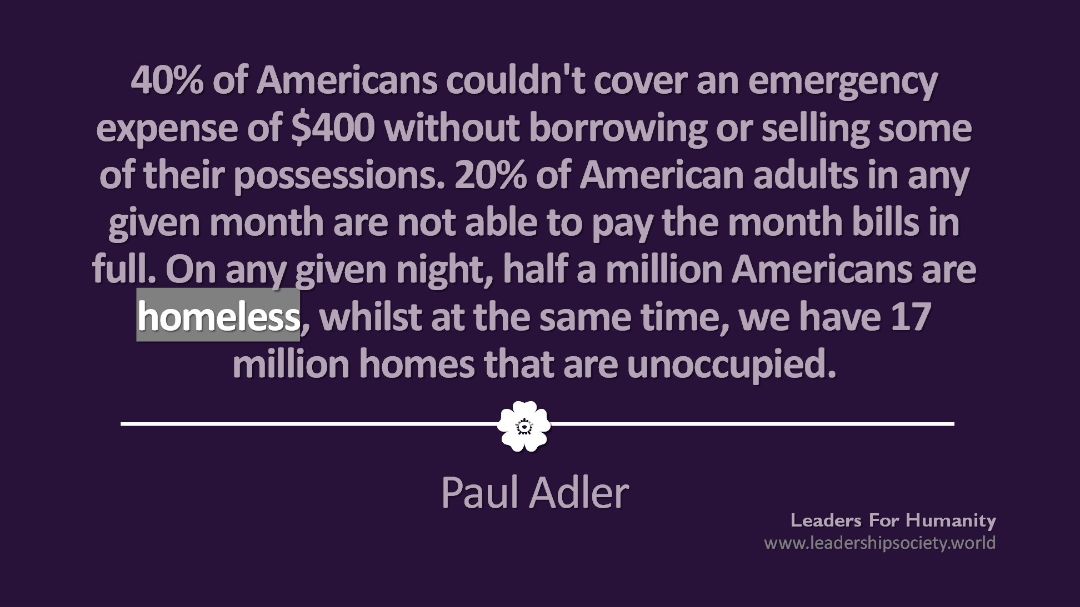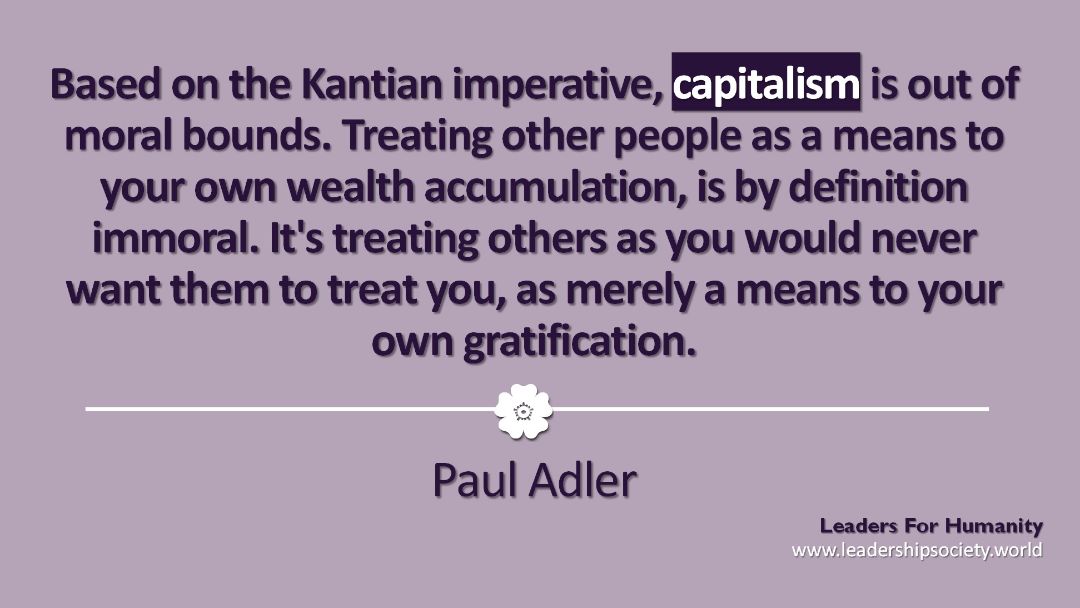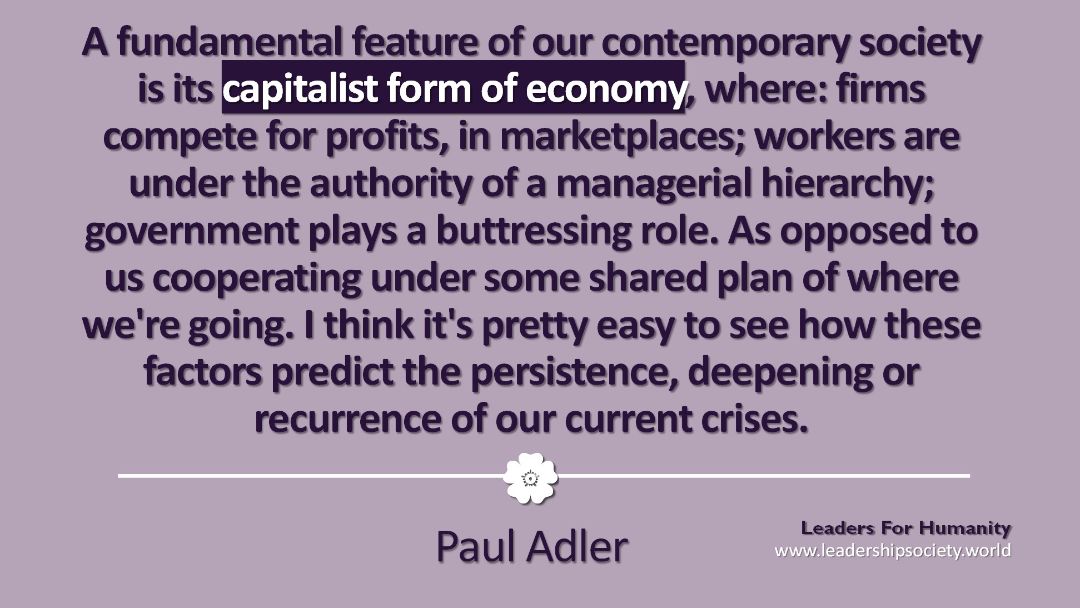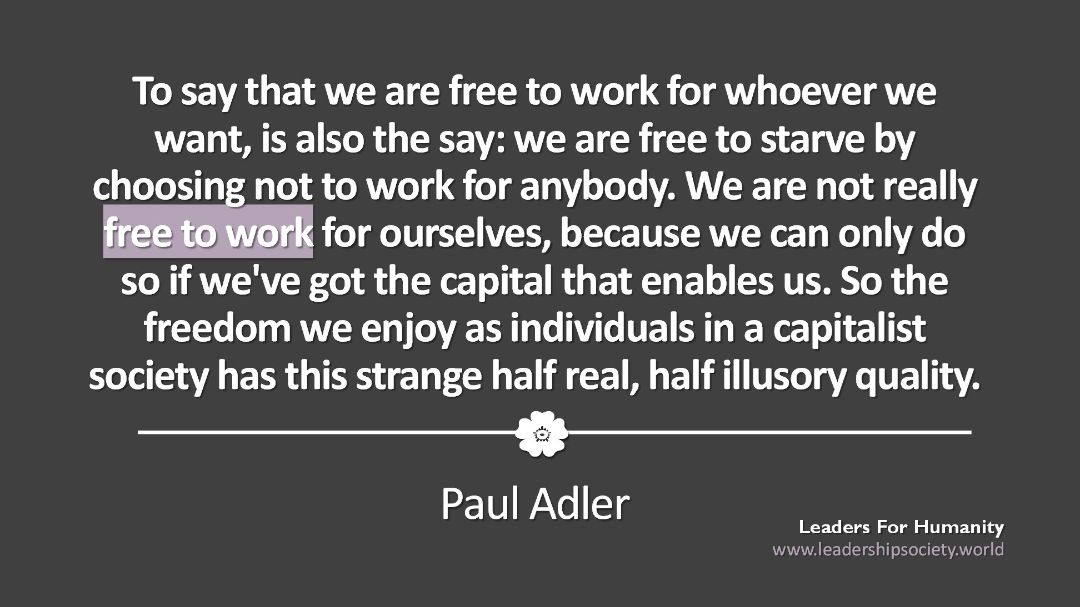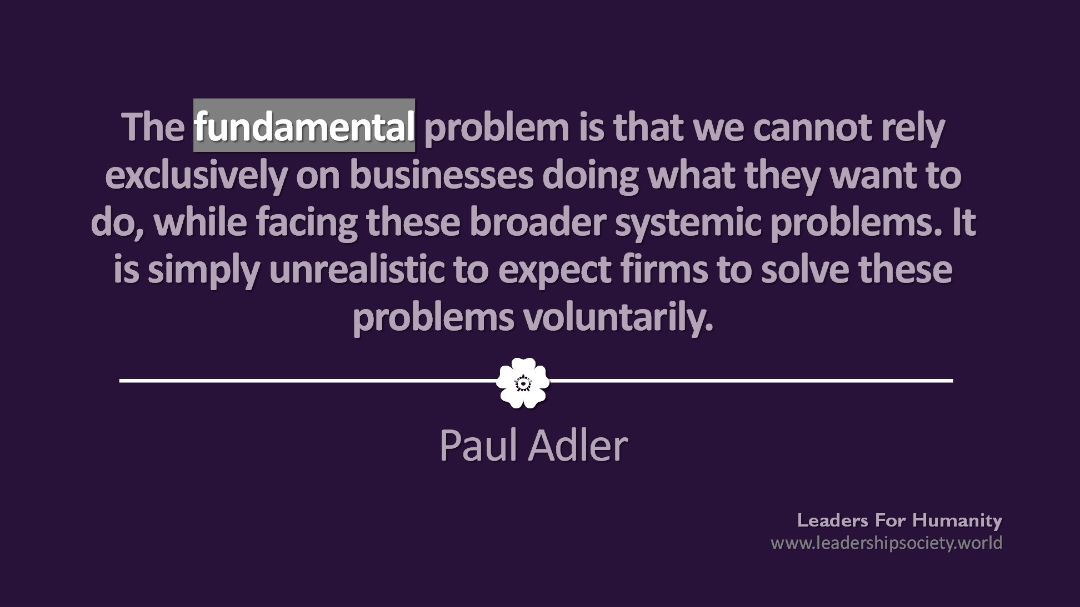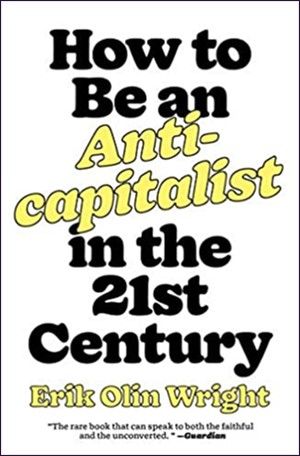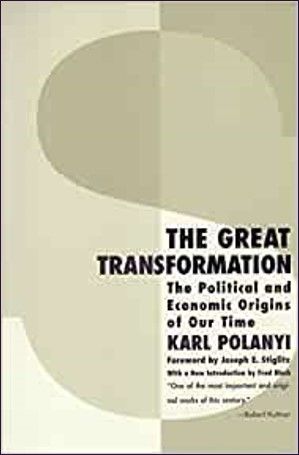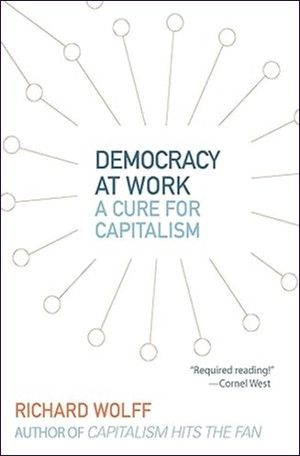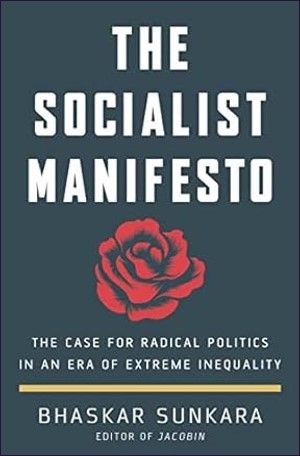In our webcast series “Leaders for Humanity” we engage with distinguished thought leaders who are passionate about human-centric change, bridge theory and practice in their work, and are willing to provide guidance and personal wisdom to our #GoodOrganisations Inquiry. In “Socratic Dialogues” we examine three critical questions together: a) what is good? b) how can we craft good organisations? c) how can we as leaders or individuals contribute?
For the full transcript and additional resources: https://goodorganisations.com/leadersforhumanity
Webcast on YouTube: www.youtube.com/c/goodorganisations
Podcast on Spotify: https://open.spotify.com/show/3B5NN89pIDPgGDEPqNv0W7
Soundcloud: https://soundcloud.com/goodorganisations
Anchor: https://anchor.fm/good-organisations
Stitcher: https://www.stitcher.com/podcast/leaders-for-humanity
To note: We work on the basis of a semi-automatic transcript. Please forgive orthographic errors and inaccuracies. Sometimes the script might be missing context — it is best “consumed” as a complement to the full webcast.
What is good?
On Marxist Ethics as Ethical Prior
- One needs to start from some ethical prior. And there, I think the Marxist view is not a particularly unusual one. I think Marxism takes on board a fairly widely shared sense that a good society would be one characterized by equality, by mutual respect, by human dignity and by the Kantian categorical imperative. I would note that based on the Kantian imperative, capitalism is out of moral bounds. One of those three fundamental features of capitalism, we just talked about, the status of treating other people as a means to your own wealth accumulation, is by definition immoral. It’s treating others as you would never want them to treat you, as merely a means to your own gratification.
On Flourishing as a Result of Dynamic Historical Development
- I think the other way of getting to Marxist ideas, is not to begin with some ideal version of where we’d like to go, but to observe the nature of conflicts we see around us in society, and to analyze them as objectively as we can and understand the inner dynamics. And that was perhaps the novelty of Marx’s take on the world, arguing that socialism wasn’t some ideal that we should be propagandizing and trying to convince people to buy into, but that socialism was the inner tendency of historical development itself. (…) When we are globally as interconnected as capitalism has made us, when we are no longer struggling to generate enough surplus to feed our entire population, when we have an abundance of technological resources the way we do; when we are no longer struggling just to put food into people’s mouths; when we have the kind of universal education that modern capitalist society affords us, then socialism becomes an almost inevitable tendency of development to fight the self-inflicted crises of capitalism.
Marxists Ambivalent View on Capitalism
- Marx has a kind of interesting ambivalence towards capitalism. On the one hand, capitalism creates a context in which, as individuals, we are freed from the constraints that we experienced in feudal or slave society. We are free to work for whoever we want, to start up our own business if we can pull together the resources, we can buy what we want, we can consume what we get, we have an enormous amount of freedom that comes with the institutionalization of the market as the fundamental economic mechanism. (…) On the other hand, this form of individualism we see under a capitalist condition is a very truncated one. And arguably a kind of a duplicitous representation of reality. To say that we are free to work for whoever we want, is also the say: you are free to starve by choosing not to work for anybody. It is not the case that we are free to work for somebody else or for ourselves, because you only get to work for yourself, if you’ve got the capital resources that enable you to do that. So the freedoms we enjoy as individuals in a capitalist society have this strange, half real, half illusory quality. And it’s important, I think, to keep both aspects in mind that indeed, a true individualism would not negate its relations to the broader community. This is a very sick kind of individualism, in which the individual liberty comes at the expense of one’s organic connection to the wider community. But that’s the way capitalism sets it up.
Six Crises of Contemporary Capitalism
- I have been particularly preoccupied by a series of crises and pain around us that seems more intractable and seems to reflect really basic features of capitalism. Therefore I call these crises systemic crises rather than crises amenable to solutions within the prevailing ideological, economic, political systems. So what are these systemic crises?
- Firstly, economic, the level of irrationality in the way our economy works oday is hard to overstate. (…) 40% of Americans couldn’t cover an emergency expense of $400 without borrowing or selling some of their possessions. 20% of American adults in any given month are not able to pay the month bills in full. (…) On any given night, half a million Americans are homeless, or sleeping outside or in emergency shelters or in transitional housing programs, that at the same time, we have 17 million homes that are unoccupied. Right, as irrationality goes. It’s pretty serious. And then we have from a purely economic point of view, just an incredible amount of waste, wasteful consumption, mountains of E-waste, we accumulate around the planet proliferate, disposable unrepairable, me-too products.
- Second, workplace disempowerment is a kind of a hidden crisis. Gallup runs a poll on workplace engagement. And it’s a pretty interesting survey. Looking across American firms over 50% of all employees are not engaged in their work, as opposed to moderately or very engaged.
- Third, there is an enormous amount of social disintegration (and discrimination). There are ways in which the capitalist core of the economy continually reproduces discrimination against women and minorities. We create so much stress in the workplace juggling home and work responsibilities, we find enormous proportion of American adults reporting rather extreme levels of stress. I won’t go into the peculiarities of the American criminal justice system, and health inequities, but many of these social problems, find their source in the really fundamental features of a capitalist economy that puts so much burden on the individual to make their own way in life.
- Fourth, international conflict at a time when we need so desperately international cooperation, in particular, to deal with the climate crisis, but also to deal with nuclear proliferation or to deal with contagious diseases. You know, what we see over and over again, is the rivalry of countries which is not just based on national pride and the egoism of national leaders but on competing business interests of the business classes of America versus China versus England versus the EU, etc.
- Fifth, the lack of environmental sustainability. If I had to pick one of these crises, as most clearly grounded in the fundamental features of a capitalist economy, it surely would the unsustainability of our industrial infrastructure, accelerated climate change, the loss of biodiversity, the depletion of the nitrogen and phosphorus cycles, air pollution already causing 5-6 million premature deaths each year.
- Finally, all this crises are met by an unresponsive government. Governments are very firm-driven, eg. patent and copyright regulations privilege corporations, the oil and other extractive industries gain tax preferences, and corporate and financial institutions fund lobbying efforts to fight for deregulation of the banking and securities sectors. At the same time the state has been reluctant to produce legislation and create policy that supports the rights of workers, the poor, and people of color.
Is ethical capitalism possible?
- To be sure, firms have some room for philanthropy. To be sure firms can sometimes do well by doing good, no doubt, to be sure firms can do a lot better than what they many do in terms of their environmental and social responsibilities and thereby make even more money. Many firms can do that. My point is very simple. I don’t see how that space for win-win opportunities is getting us anywhere near enough to deal with problems like the global climate crisis. I will also make the same claim about cycles of unemployment. No one has shown me that capitalism is capable of sustaining itself for more than a couple of decades at a time without a major economic crisis that it generates and throws workers and their families out of work. That is a recurrent feature of every form of capitalism we have ever seen, including the Nordic. So I think the fundamental problem here is that if we rely exclusively on businesses doing what they want to do, while in reality these are broader systemic problems. It is simply unrealistic to expect firms to solve these problems voluntarily.
- Can we imagine government stepping in? In the form of a welfare state to remedy those problems and set enterprises on a path where in order to maximize their profits they have to satisfy these other social or environmental needs that we have? (…) Even the most enlightened government in the world cannot afford to impose on the private sector regulations or taxes of the magnitude needed. This would cripple the private sector’s profitability and throw millions of people out of work. The government would lose its legitimacy, and the government would fall to. Can we solve these big problems without imposing on business crippling levels of regulation and taxation? I say the answer’s no. The clearest evidence for this argument is in the case of the environmental crisis. Everybody’s making happy talk about how we can impose a carbon tax and steer the industry towards as a zero emissions future. It’s too late to do that, fellas, the business community has successfully resisted the imposition of regulations and taxes. When this problem became obvious 40 years ago, they have successfully resisted every effort to impose even modest levels of emissions control. And now we’re faced with a dire emergency, where we would need to impose massive reductions of emissions very rapidly on an enormously complex economy.
On democratic socialism
- When we talk about democratic socialism, let’s split the two parts, the socialism and democracy. The socialist part comes from the idea that we would be treating the country’s economic resources as common property, a social property, not as private property. And we would decide together somehow, how to use those resources to satisfy our goals. In the authoritarian version of socialism it’s some government elite, some party elite that decides what those goals are, and decides how to use the country’s resources to achieve them. In democratic socialism there is some democratic process for deciding on the country’s goals, on the goals of the industry, the region, the country as a whole and deploys those resources to achieve those goals in through social property rather than private property. In more detail:
- The economy would be organized in three rings.(…) In ring number one are organizations that are simply part of the government apparatus, their extension of government. E.g. in the in the United States, most of our electricity generation is through investor-owned utilities. There’s no reason to have investor-owned utilities. Nationalize the damn things, turn them into government agencies. We will have a Ministry of Industry, which will run the electricity generation process for us. Ring number two, you might imagine another group of socialized enterprises where they don’t own their own equipment or land, they lease those from the government. Our representatives in government, through consultation with civil society in various forms, articulate some economic, environmental, social goals, through a process of collaborative planning. These goals are then put to these enterprises in the second ring. And these enterprises are then asked to make proposals for how they can contribute to our shared goals at the regional industry and national level. There will be a dialogue there. They are independent entities, albeit operating on leased equipment and land from the government and reliant on government financing. But there’s a dialogue there as to how the enterprise is going to satisfy the planning goals that we set for. And then the third ring would be the residue of private enterprise.
- My idea was (…) based on the experience of the better managed big corporations and their strategic planning processes. Quite a few of them have developed mechanisms for involving middle managers and even frontline employees in the identification of new strategic opportunities, in the identification of strategic threats, in identifying the strengths and weaknesses to build on or remedy in order to achieve our goals. Based on these insights of collaborative planning we can have a dialogue in our cities, you know, enterprises, in our industries, and at the national level. And we can imagine a national dialogue about what our goals are, and then in a second round a national dialogue about what specific plans might enable us to reach those goals. And then the third dialogue about budgeting, about what resources everyone is going to get in order to pursue the three cycles of corporate planning that we see in big corporations. It’s a pretty robust process there. And it’s not that difficult to imagine that this could play out on the biggest scale of region and country.
The good organisation
The good organisation in principle
- In my view a good organization is not very different from anybody else’s view. It’s an organization in which people they’ve come together to produce something they care about producing and they organize themselves so that they are as effective as possible in the collaborative work they need to achieve the business’s goals. And they leave at the end of the day having the feeling that they’ve been treated with dignity and respect. Maybe that’s all I need to characterize a good organization. I would argue that, in a capitalist world, a for-profit enterprise encounters some pretty insurmountable obstacles to achieve that goal. And those obstacles are, fairly simply stated, because the purpose that might bring people together in a collaborative way, is only ever half the purpose of the organization, the other half is generating profit for its investors
From purpose…
- I got drawn to the question of shared values when trying to understand how some of the organizations I studied came to perform so much better than others. (…) If people in the organization share some sense of collective purpose, lots of good things happen. In their local problem solving, when they encounter contingencies in their work, they can be guided to the extent that they have internalized those shared purposes of the organization. In this way they can make better choices without having to refer up the chain of command which would slow down problem solving, and probably reduce the quality of problem solving because of the problems are being solved further away from the place where they will be experienced.
…to rational shared values
- So how do they get that? Well, that’s complicated. But in the work I’ve done with Charles Heckscher, we tried to identify some general principles that seemed to explain the sorts of things firms were doing to sustain that sense of shared purpose. (…) We found ourselves going back to Max Weber’s typology of social action, and a corresponding typology of organization.
- Interaction can be instrumentally rational. We can interact with other people because we have some goal in mind for ourselves, and we look to maximize what we can get from the other person to satisfy those. (from another text) Members’ relationships to the organization is itself merely instrumental to their own individual material ends. Social action in this type is organized either by bureaucracy or by internal markets. As employees are to take the organization’s purpose as given, and to behave in an instrumentally rational way, if they want to keep their job, they are to implement the corresponding procedures or incentives as efficiently as possible.
- Human interaction can also be motivated by tradition, where we do the same things because out of habit or reverence for some sacred tradition.
- It can be motivated by affectual commitments. Humans can interact with other people based on the feelings of anger or love or desire. The charismatic organization is an organization based on affect, on an emotional connection to an inspiring leader and inspiring vision. It’s an emotion driven organization.
- And it can be value rational, where our interaction with others is based on our shared commitment to some higher value. This is the collegial organization in Weber’s terms. And we’re all familiar with collegiality as a norm for those of us who work in universities — even if we don’t often find our departments very collegial. But sometimes on a good day we know what it means to be in a collegial organization. We treat each other as peers. We make decisions by consensus. There is an element of mutual respect based on our respect to each other’s professional training. (…) But we eventually came around to decide that what we found was a distinctive form of organization that maybe didn’t even exist in Weber’s time. (…)
- They’ve been trying to build an organization in which the shared norm of interaction is one of value rationality, and where we expect everybody to be contributing to our shared purpose, but we do it at scale. So what enables them to preserve value rationality at scale, when Weber taught us that when value rational, collegial organizations grow in size and complexity, they inevitably become bureaucratic? (…) We believe it is distinctive form of organization that in some ways is still emergent: for sustaining that shared purpose, at large scale, for developing the disciplines that enable them to ensure consistent behavior across such large organizations, but do it through standards and procedures that are not alienating, that are experienced as enabling and not coercive (…). And where we preserve that sort of creative individualism at the same time, as in people’s minds, they experience a commitment to the collective good.
The Transformation
- I think the evidence supports the proposition that capitalism is a system of recurrent economic and financial crises. God knows, we can debate why, but the crises are empirical facts. And so there will be another one of those soon enough. And who knows how people respond in the face of a massive crisis, the political cards will be shaken up, as they are in every one of these major economic crises, for better and for worse. So that opens up new possibilities, good and bad. (…)
- I think the path here is via building mass movements around the various fundamental challenges we face, bringing those social movements together in the United States context. That’s a huge challenge. I think it’s also increasingly a challenge in Europe, where the old social democratic parties have lost the hegemonic role on the left, and now we see a proliferation of parties of all different stripes. (…)
- The one thing that I would point out is that if the conservative forces in the United States have had such great success, a lot of it is because they read Lenin and took it seriously. They understood that if you have a dedicated core of professional revolutionaries, you don’t need many people to transform a society. And they have a dedicated core of activists that work locally, in school councils, in city councils, in neighborhood committees, in their local churches. The conservative right, especially the more Christian fundamentalist activists, far right in American politics, have been incredibly effective Leninists in doing that deep work of convincing their fellow citizens of their point of view. They get into real conversations with the people at the local school board meeting, at the local church session on a Sunday morning. The left has not done that work. (…) So I think there’s a lot of work to be done by an organized, progressive movement that actually goes door to door, meeting to meeting, household to household and bar to bar. But you have to go where the people are.
For our full Leaders for Humanity interview with Paul Adler see: https://www.youtube.com/watch?v=nmxaUTNnjVs&list=PLAPiHnsKsNHvIX9ScwluwGVsMH8DI5z-1&index=18
Transcript, Materials and Notes: https://goodorganisations.com/LeadersForHumanity_S1/#PAULADLER
More information about the Good Organisations inquiry: https://goodorganisations.com
Good Organisations LinkedIn page: https://www.linkedin.com/company/good-organisations/
Good Organisations Facebook: https://www.facebook.com/LeadersForHumanity/
Good Organisations YouTube channel: https://lnkd.in/ea3nhQqD
Leaders for Humanity Podcast on all major stations:
Spotify: https://open.spotify.com/show/3B5NN89pIDPgGDEPqNv0W7
Apple: https://podcasts.apple.com/gb/podcast/leaders-for-humanity/id1605487911
Anchor: https://anchor.fm/good-organisations
Podchaser: https://www.podchaser.com/LeadersForHumanity
Deezer: https://www.deezer.com/en/show/3318142
Stitcher: https://www.stitcher.com/podcast/leaders-for-humanity
ListenNotes: https://lnns.co/PbUlHxMd3BX
Soundcloud: https://soundcloud.com/goodorganisations
TuneIn: https://tunein.com/podcasts/p1608691/?topicid=169239930


